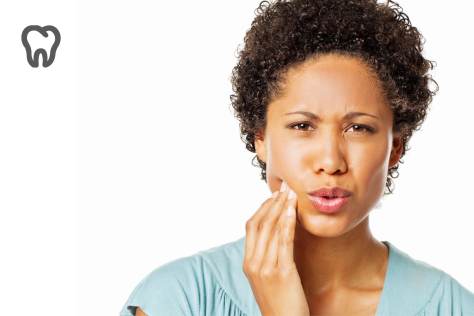 Everyone knows how important it is to brush twice daily and floss for healthy teeth and gums. No doubt, your dentist reminds you at every six-monthly visit. But did you know that there are lots of things you can do to prevent the serious and growing problem of tooth erosion?
Everyone knows how important it is to brush twice daily and floss for healthy teeth and gums. No doubt, your dentist reminds you at every six-monthly visit. But did you know that there are lots of things you can do to prevent the serious and growing problem of tooth erosion?
‘Your tooth enamel is the hardest substance in the body and it is designed to protect the inside of your teeth’ says Dr Lincoln Law, dentist at the healthy teeth clinic in Surry Hills.
‘But acidic foods and drinks can damage the teeth by etching away at the thin layer of enamel. This leads to sensitivity and this can leave your pearly whites less than white,’ he adds.
Tooth sensitivity: why it happens
‘Teeth are made up from layers, the outer surface is enamel and when this is worn away, the dentine layer is exposed, which is a yellowy or off-white colour. Dentine has tiny holes in it and via these holes, hot and cold temperatures and even sweetness, and sour tastes can reach the nerves causing pain.’ Explains Dr Lincoln.
More and more people are being affected by sensitive teeth, a problem that can start early in life. Plus, if tooth erosion affects the adult teeth, the results are permanent because enamel doesn’t grow back!
It’s all about pH
‘Both acids and alkaline are measured via a system called pH and your mouth has a pH of around seven (a pH of one is very acidic and 14 is very alkaline). So seven is neutral because it’s right in the middle of the pH scale.
‘So, acidic drinks – such as cola which has a pH of around three – erodes enamel i.e. it dissolves the calcium salts in it. See for yourself – if you have a baby tooth to experiment with, drop it into a glass of cola and it will eventually dissolve. Foods such as pickles and vinegars, and drinks such as wine also etch away at your enamel,’ he says.
Enamel erosion can have other causes too, including:
- Acid reflux – where acid from the stomach flows up the mouth causing the pain of heartburn). The acid usually affects the teeth at the back of the mouth.
- Frequent vomiting – which can be caused by medicines and also the condition bulimia. This also erodes the back or chewing teeth.
- Over-brushing or using abrasive toothpaste – both can wear down your precious enamel.
- Physical wear and tear – including tooth-to-tooth grinding, which can lead to the gradual loss of enamel.
What you can do
‘Leave some time between eating acidic foods or consuming acidic drinks – including breakfast juices and tooth brushing. This is because the acid will have softened the enamel. And, brushing too soon can literally brush enamel away. So brush before food and rinse your mouth with water afterwards,’ Dr Lincoln advises.
Remember, it can take up to 30 minutes for the surface of a tooth to get back to normal pH after an acidic drink so wait at least this long before brushing.
Treatment
Sensitive teeth can be treated with high-strength fluoride toothpaste or remineralising pastes containing calcium and phosphate. If the damage is severe, though, you may need restorative dentistry.
Practical tips to protect your enamel
Don’t brush too soon after eating foods with acids in them (including pickles and ketchup) and drinks (such as juices and wine).
Eat fruits as part of a meal since chewing stimulates saliva, which is your body’s natural way to cleanse your mouth.
Avoid fizzy drinks, especially with screw caps to discourage sipping throughout the day. ‘If you want a fizzy drink, drink in one go and use a straw to reduce contact with the teeth. Rinse your mouth with water afterwards. Remember that juices and some alcoholic drinks including wine are also acidic and spirits with juices plus cider. Sparkling water has less of a damaging effect but still contains acid,’ advises Dr Lincoln.
See your GP if you are having problems with acid reflux.
See your dentist to check you haven’t cracked a tooth or filling that’s causing the sensitivity.



























